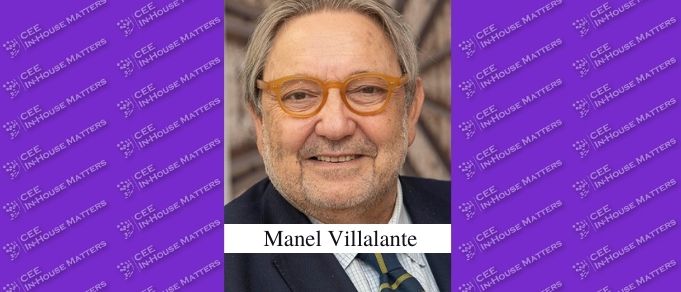On December 6, 2021, CEE Legal Matters reported that PwC Legal had advised Spanish railway company Renfe on the acquisition of a stake in the Czech carrier Leo Express. CEE In-House Matters spoke with Manel Villalante i Llaurado, Chief Strategy Officer at Renfe, to learn more about the matter.
CEEIHM: To start, tell us a bit about Renfe and its history.
Villalante: Our beginnings go back to 1941 when the process of reconstructing and nationalizing the railway industry took place in our country and gave rise to the national network of Spanish railways.
Renfe is now Spain´s leading rail operator in passenger and goods transport, dependent on the Spanish Ministry of Transportation, Mobility and Urban Agenda (Ministerio de Transportes, Movilidad y Agenda Urbana) but independent of infrastructure management since 2005 and, therefore, fully adapted to the liberalization scenario in Europe with over 80 years of experience in railway transport and quite importantly, 30 years of high-speed excellence.
We organize our activity into four companies in the group which are: Passengers, Freight, Manufacturing & Maintenance, and Rolling Stock Rental. We set ourselves apart from other transport options and adapt to the needs and demands of the most crucial element in this entire structure: our customers. With more than 5,000 trains running every day in Spain, over 500 million passengers a year, 18.3 million tons transported each year, nearly 15,000 employees, and exceptional rates of punctuality, quality, and satisfaction, Renfe is working to consolidate its leadership in Spain and extend its international reach, with presence in countries as wide-ranging as the United States, France, Mexico, Saudi Arabia and now, we are also in the Czech Republic.
CEEIHM: What was it about the target - Leo Express - that made it particularly attractive to Renfe?
Villalante: The internationalization of our group is a pillar of our Strategic Plan. Our objective is that 10 percent of our earnings to come from the international business by 2028.
Thus, Renfe is always seeking to establish alliances and open up new business channels outside the domestic market. Acquiring 50 percent of the capital of Leo Express will allow Renfe to have a presence in the Czech Republic, Slovakia, and Poland, and to have the resources and licenses to access the German market.
Renfe would also be better positioned to access the high-speed projects planned in the region, where there is still a lot of potential for the development of their transport infrastructures.
Moreover, Renfe’s landing in Central and Eastern Europe could have a knock-on effect, facilitating the growth of the international activity of other Spanish companies, especially those related to the railway industry.
CEEIHM: What would you say was the most complex aspect of the deal from a legal perspective?
Villalante: There is an inherent complexity in a transnational transaction as it incorporates each jurisdiction’s requirements and regulations. In this case, we have to take into consideration the fact that we not only combine cross-border regulations but also public and private frameworks. This deal sets a new precedent in Renfe’s history as it is the first time we enter into an already operating company abroad. Although we are experienced in the international business and we have international branches such as Renfe of America and Haramain, this is the first time that we become shareholders in an active foreign company, which poses a different kind of legal challenges.
CEEIHM: How was the legal work split between your in-house legal team and that of PwC Legal?
Villalante: PwC Legal was our main support in this matter regarding the legal base, while our in-house legal team ensured compliance with our public duties, our internal regulations, and the adjustment of the provisions themselves to our strategic objectives. Due to the fact that we needed to abide by the Czech legal system and take into account the singularities of the international element, which was new territory for us, it was material to count on the expertise of the Spanish and Czech teams.
CEEIHM: And why did you choose PwC Legal as your advisor for this deal?
Villalante: Being a public entity, it is a priority for us to comply with and guarantee all the relevant public procurement laws, for that reason and considering the importance of the task, there was a tender procedure to evaluate the offers of reliable advisors. PwC Spain was awarded this contract and supported us in the several steps that comprised this deal, starting with the due diligence, all the way until the very day of the closing. By the end, focusing on the work of PwC Legal, I must highlight the joint effort of the Spanish and the Czech teams, who provided us with constant support, being aware of the significance of this deal.


